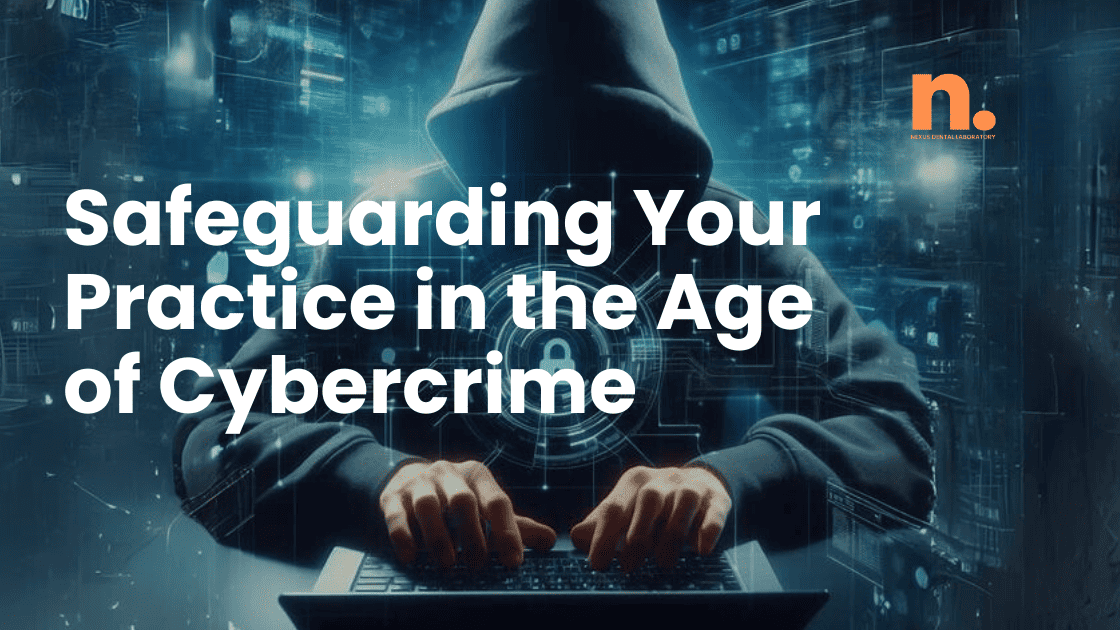
The digital revolution has irrevocably transformed modern dentistry. Cutting-edge technologies have ushered in an era of improved quality of patient care and greater efficiency.
However, this rapid digitisation has also introduced new data security risks that can damage unsuspecting dental practices.
Once protected in file cabinets and back offices, sensitive patient data, financial information, and intellectual property reside in interconnected networks and devices - vulnerable treasure troves for increasingly sophisticated hackers and cybercriminals.
Recent headline-grabbing ransomware attacks like the breach of industry giant Henry Schein Dental in the UK provide a sobering case in point.
They demonstrate that even leading dental corporations with huge security budgets are not immune as cyber threats continue their relentless rise.
The risks are even more pronounced for small, independent practices on tight budgets, often lacking resources or expertise in cybersecurity.
This article provides straightforward, actionable tips to help dental practices of all sizes strengthen their digital defences and cyber hygiene practices.
Doing so will empower them to confidently embrace the promise of new technologies to advance dental care while proactively safeguarding their practices against cyberattacks in our rapidly evolving digital era.
High-profile incidents like the ransomware attack on Henry Schein Dental exemplify how even corporations with significant resources can fall victim to these schemes.
The fallout from such an attack can be business-critical for smaller clinics. Encryption or deletion of patient data, billing information, or dental imaging databases even briefly can destroy operations.
System downtime and data rebuilding costs can run into thousands of pounds, even if backups exist. This doesn't even account for the immeasurable damage to a practice's hard-won reputation among its patients if sensitive personal data is compromised.
Ransomware perpetrators know that dental practices require access to digital patient data to function. This makes them prime targets, as practices may opt to pay the ransom and resume operations quickly rather than risk prolonged disruption.
With hackers devising increasingly advanced malware and social engineering tactics, ransomware is a key risk that dental teams must prepare for through training and safeguards.
Even if not targeted by ransomware, dental practices face data breach risks ranging from staff errors to hacks of online systems or email.
Breaches can have severe financial and legal repercussions. Under GDPR, fines in the UK can soar into the millions based on a percentage of company revenue.
Just as concerning is the irreparable damage to patient trust and referrals that a breach of sensitive personal health information can cause.
Data protection laws mandate prompt disclosure of breaches, so practices must notify patients of any potential compromise of their records—eroding patient confidence, their most valuable asset.
Proactively securing data and minimising data breaches is imperative.
Protecting your practice requires a multilayered approach combining technical safeguards, strong policies, and vigilant employees.
Implementing the latest security technologies is crucial for identifying and blocking threats:
Technical tools must be backed by stringent cybersecurity and data governance policies:
Your team is your first line of defence against cyberattacks:
Navigating the balance between digital advancement and cyber risk in today's dentistry landscape does not need to be a solo effort.
Partnering with dedicated experts like Nexus Dental provides the depth of knowledge and tailored guidance practices require to implement robust digital workflows.
We are proud of our investment in state-of-the-art systems that provide ironclad protection for client communications and patient data.
Our secure client portal utilises powerful encryption, two-factor authentication, and access controls to create an impenetrable gateway for data transmission.
We also have tight integration with industry-leading DSCore to enhance security further. This allows patient information and images to be exchanged through their rigorously audited platform.
Our secure portal and DSCore integration form a robust, bonded security barrier spanning transmission, access, and storage. This multi-layered approach aims to render client data indecipherable and inaccessible to cybercriminals at every stage, leaving zero gaps or weaknesses for potential exploitation.
Database encryption, regular patching, and infrastructure monitoring further reinforce our defence-in-depth strategy.
By leveraging these state-of-the-art cybersecurity tools, we strive to provide our clients with complete peace of mind that their valuable data remains protected, allowing them to feel confident embracing digitisation to advance patient care.
Of course, while we take every precaution, no business can guarantee 100% security in the face of increasingly sophisticated cyber threats.
We as an industry must recognise the unique risks in this digital era and take proactive steps to assess and upgrade our defences regularly.
Maintaining robust, layered security and following best practices for dental cyber hygiene is vital to managing risks and sustaining hard-won patient trust.